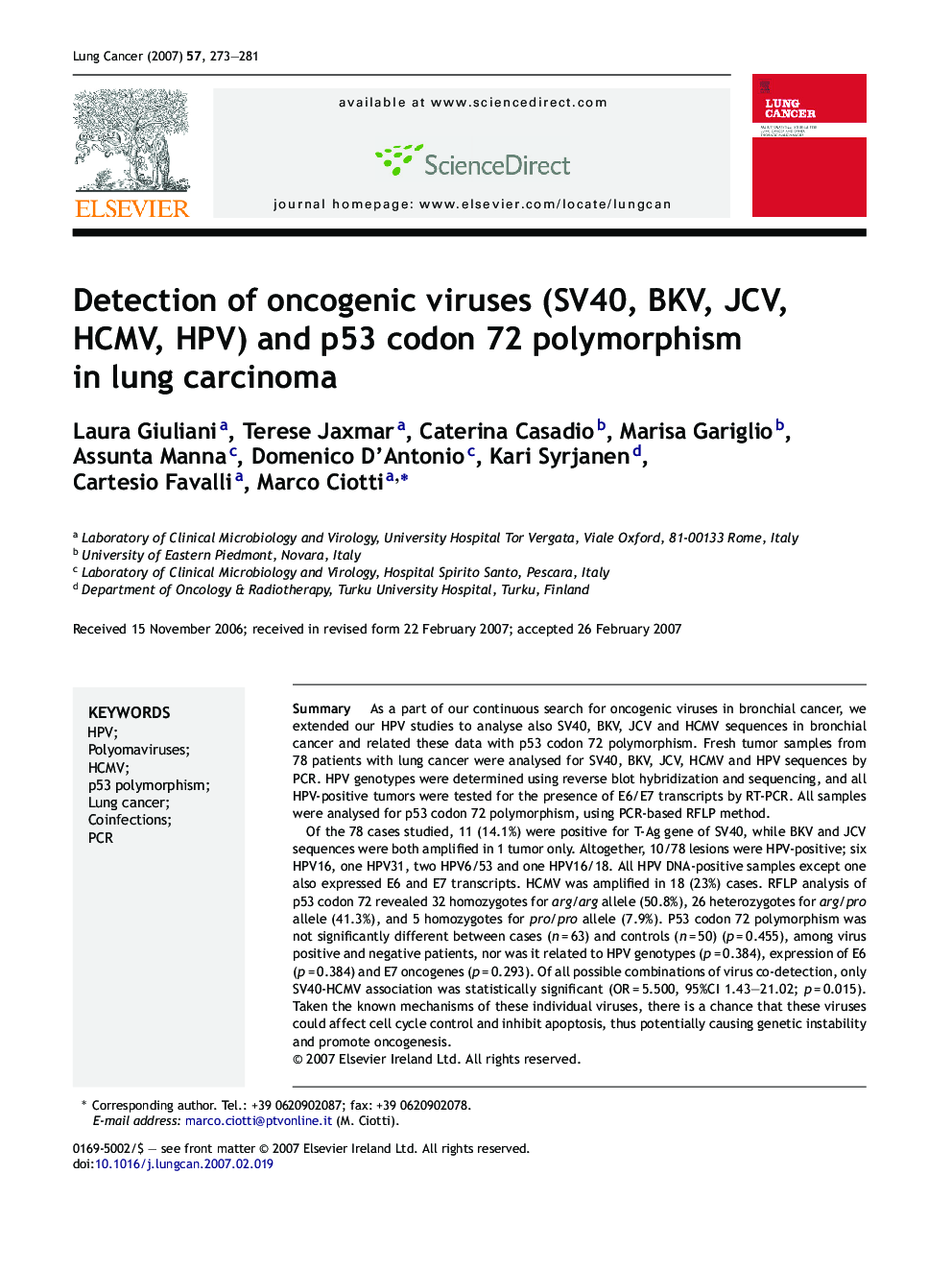| Article ID | Journal | Published Year | Pages | File Type |
|---|---|---|---|---|
| 2144079 | Lung Cancer | 2007 | 9 Pages |
Abstract
Of the 78 cases studied, 11 (14.1%) were positive for T-Ag gene of SV40, while BKV and JCV sequences were both amplified in 1 tumor only. Altogether, 10/78 lesions were HPV-positive; six HPV16, one HPV31, two HPV6/53 and one HPV16/18. All HPV DNA-positive samples except one also expressed E6 and E7 transcripts. HCMV was amplified in 18 (23%) cases. RFLP analysis of p53 codon 72 revealed 32 homozygotes for arg/arg allele (50.8%), 26 heterozygotes for arg/pro allele (41.3%), and 5 homozygotes for pro/pro allele (7.9%). P53 codon 72 polymorphism was not significantly different between cases (n = 63) and controls (n = 50) (p = 0.455), among virus positive and negative patients, nor was it related to HPV genotypes (p = 0.384), expression of E6 (p = 0.384) and E7 oncogenes (p = 0.293). Of all possible combinations of virus co-detection, only SV40-HCMV association was statistically significant (OR = 5.500, 95%CI 1.43-21.02; p = 0.015). Taken the known mechanisms of these individual viruses, there is a chance that these viruses could affect cell cycle control and inhibit apoptosis, thus potentially causing genetic instability and promote oncogenesis.
Related Topics
Life Sciences
Biochemistry, Genetics and Molecular Biology
Cancer Research
Authors
Laura Giuliani, Terese Jaxmar, Caterina Casadio, Marisa Gariglio, Assunta Manna, Domenico D'Antonio, Kari Syrjanen, Cartesio Favalli, Marco Ciotti,
